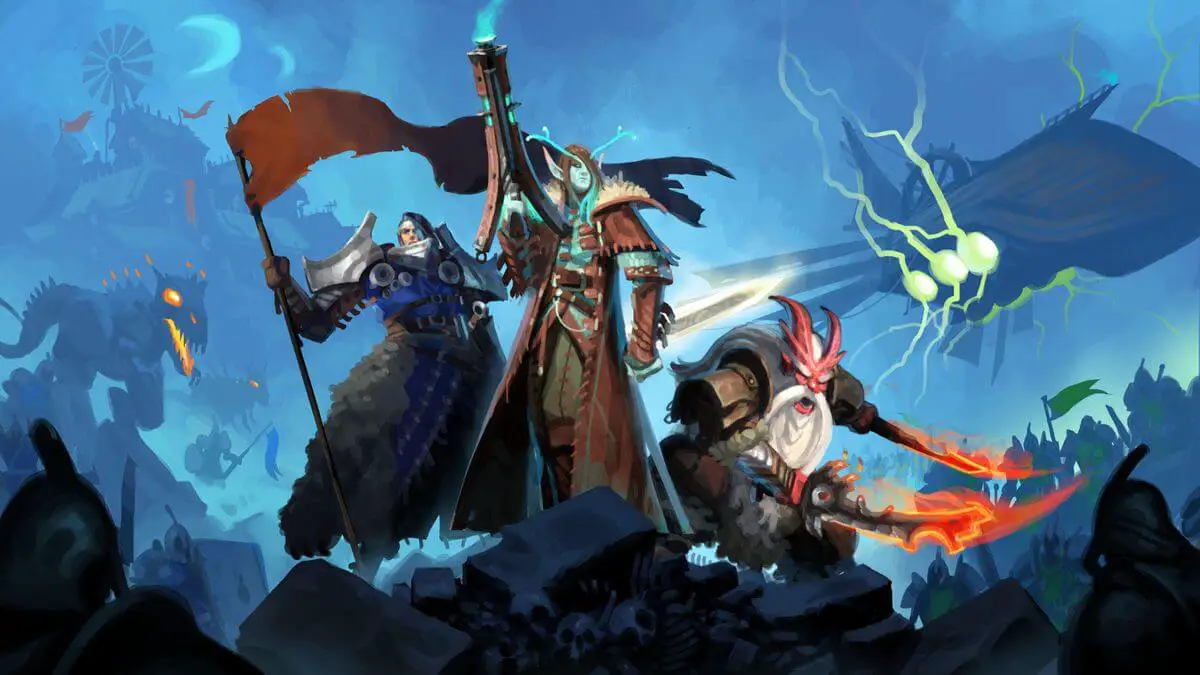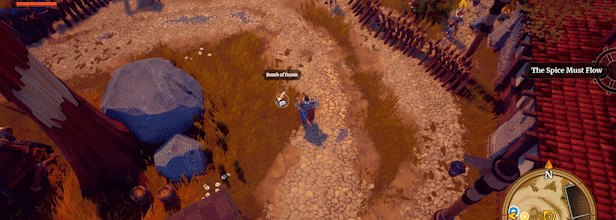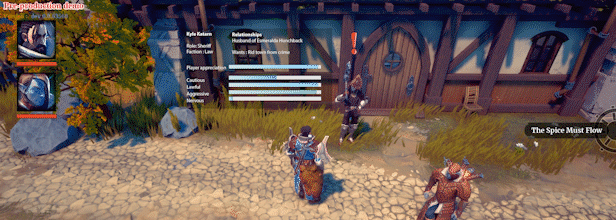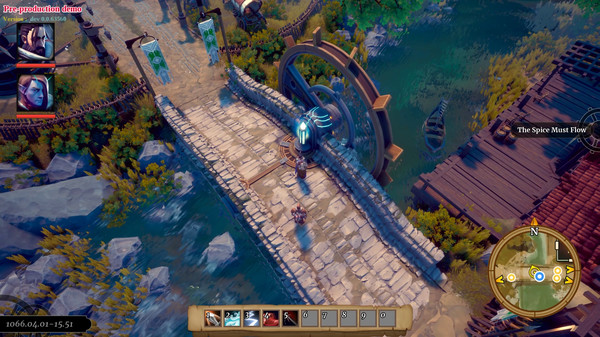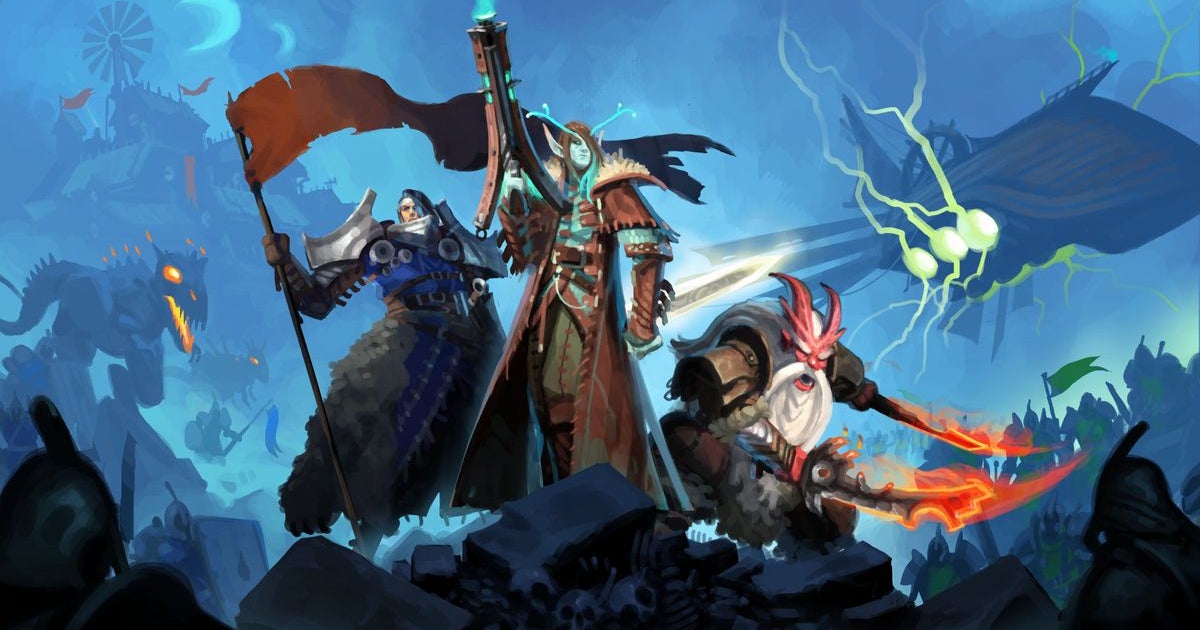Interactivity is at the heart of video games' appeal, but that interactivity has its limits -- especially when it comes to the narrative of an RPG.
Players are inherently constrained to the mechanics that developers give them, and even the most exhaustive branching structure can only tell the story scripted into the game. But Montreal-based indie Spearhead Games believes it can change this with the upcoming Project Witchstone.
The studio's co-founder and creative director Malik Boukhira offers Skyrim as an example of the genre's limits: you can walk into a village, kill everyone in sight, then proceed to the next village where there will be no consequences for your actions. Spearhead wanted to make a game "where everything is driven by consequences."
Project Witchstone is perhaps unremarkable to look at: a top-down RPG in the vein of Neverwinter Nights et al in an original fantasy setting. While it's not open world, Spearhead promises multiple locations that are both large and brimming with possibilities.
There are some handcrafted quests to be completed, but many of the tasks doled out to players are dynamic, based on the needs of the various characters in the area or the goals of the factions vying for control. Boukhira claims there is no predetermined narrative in the game, but "one that is built dynamically around whatever the player does."
"In a way, we could say that in this game every player action is a decision," he says. "We don't have these branching points, like the classic approach. Instead, every character in the game has an AI that will output reactions; there are events that can happen, factions with agendas, things like that. All of that is dynamic. Then based on the player input, things are going to shape out in one direction or another."
Spearhead openly declares that tabletop RPGs like Dungeons & Dragons are a major influence, and even claims it will offer "the fun and freedom of a pen and paper campaign." But this must surely be technically impossible -- tabletop players can perform any action they can imagine, whereas gamers are restricted to whatever developers have coded into the game.
"So you're right," Boukhira acknowledges. "You can't do anything in terms of actions. That's something we have to provide. So we give you a bunch of [systems]. You can stab people, you can sneak around, you can steal. You can disguise yourself. We create as many as we can basically. But where it becomes really free is that all these actions can be used freely in a way that creates reactions in the world."
It's best explained with a gameplay demo. Boukhira begins in a village caught between two warring factions where he discovers soldiers harassing a local man. This is not a scripted event -- it occurs when soldiers of one faction encounter a supporter of another. Players can intervene or just let it play out. Boukhira opts to persuade the guards to leave the man alone and, in almost Telltale-like fashion, the victimised man will remember that.
A further example comes when Boukhira tries to give another person flowers and they run away. "That's because he's afraid of me and I forgot," he says. "People have memory of what I did to them.
"Even the small events have a consequence later. So the town knows I helped that guy [earlier], which his friend might like it, but his enemies might not."
Where Spearhead really steps up is the dialogue system. While there are, of course, pre-written options players can select from, there is also the ability to give your own commands via a series of drop down menus with a wider range of verbs. Boukhira demonstrates by potentially asking another villager to kill a specific character or meet him at a specific place. And, as with tabletop RPGs, a dice roll will determine whether the person obeys.
Players are also able to set themselves objectives or challenges. Boukhira decides to infiltrate one faction's nearby garrison and assassinate the leader, showing off the stealth mechanics as he goes. If he fails, and doesn't get cut down by the guards, he will have to live with the consequences.
Because it's a demo, Boukhira naturally breeze through, but here he faces another moment of wider opportunity.
"I could plant evidence at the crime scene to blame this on someone else," he says. "I didn't steal anything relevant for that, but that's one of the possibilities. So that's what we mean with the freedom of the system. There is not a single output with what we have. I can stab him, I snuck around, I could plant evidence. I can talk to people -- I could have bribed the guard maybe to get in. So even though there is a limited set of actions, they are very open in how you use them."
Giving players a range of systems to utilise is only half the challenge; Spearhead need to somehow predict how they might be used. They need to imagine what players might plant at the scene of a murder and then ensure the appropriate repercussions are felt across the game. Boukhira says this is handled to an extent by the AI behind the NPCs and how its programmed to react to things. Characters are even given personality traits and goals that might affect their reactions to introduce more variety for players.
Players will be only to craft their own dialogue to an extent by giving commands to NPCs, even telling them to kill key characters
"The biggest challenges is not having things react, but having things react in an interesting way that creates a consistent story," he says. "It's an RPG and we want to build toward something."
But with so many systems at play -- the dialogue, the factions, the dynamic events -- is there not a danger players could abuse this freedom in a way that locks off much of the content. It sounds like murdering everyone in this village would be much more detrimental to adventurers than it would in Skyrim.
"I'm really not worried about that for two reasons: one, if they broke it, they did it on purpose and it was their [idea of] fun. Second, if you try to murder everyone, there will be consequences, of course.
"You roleplay through your choices. If your adventure is going to be that you're a mass murderer and you're the most hunted guy in the area, then that's going to be your adventure. That's what you tried to do. You enter a village and everyone will flee and guards will rush at you and you'll have to deal with that. Maybe you'll join some terrorist faction and that will be your story and we're fine with that."
Boukhira emphasises that you would "have to kill everyone" in order for there to be nothing to do in Project Witchstone -- and even if you did, there are still dungeons to explore. The dynamic quest system means every character can potentially give you a task to carry out (although he warns that players who kill all main quest givers may find themselves spending hours catching chickens for peasant farmers).
"That's your fault for killing every one of importance. But it would be very difficult for you to do that. Faction leaders have guards, for example. So it would be an achievement in itself to successfully murder everyone.
He concludes: "Our goal is to support just fucking around, because people just sometimes love that. They don't care about the story, they just care about playing in a world that reacts to them, and they have their own fun and we're fine with that. We don't want to restrict someone who wants to be a murderer hobo or whatever."
